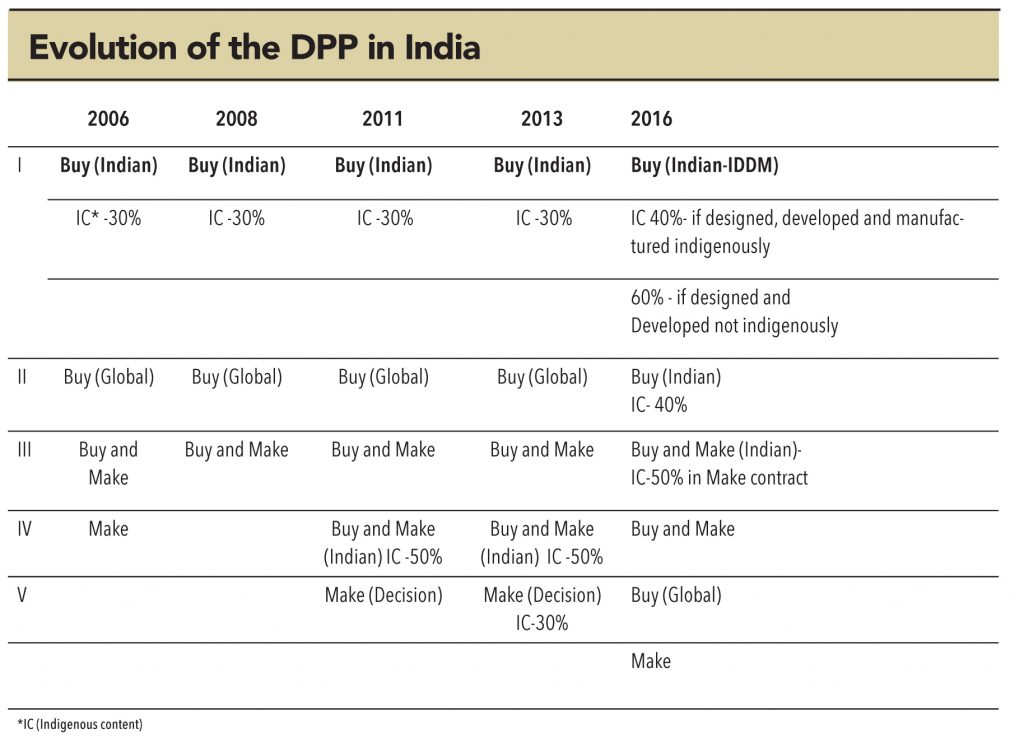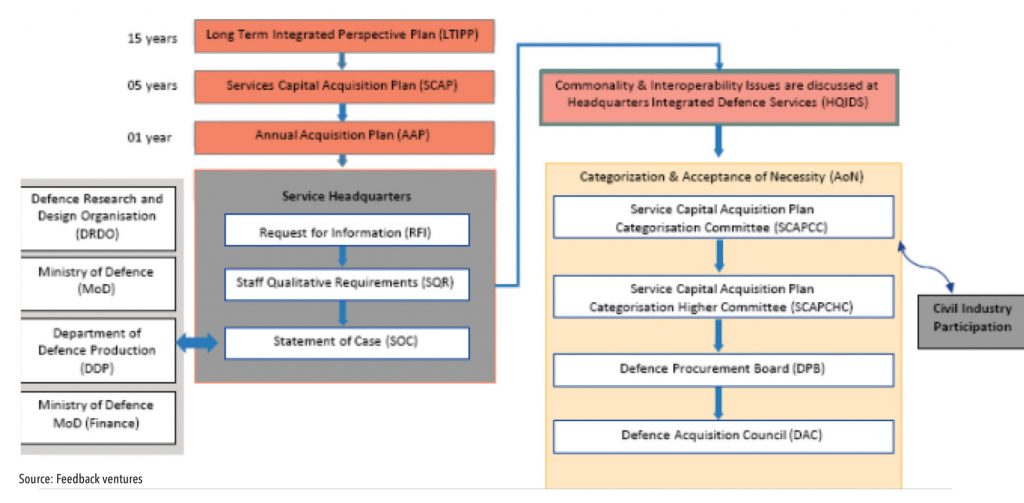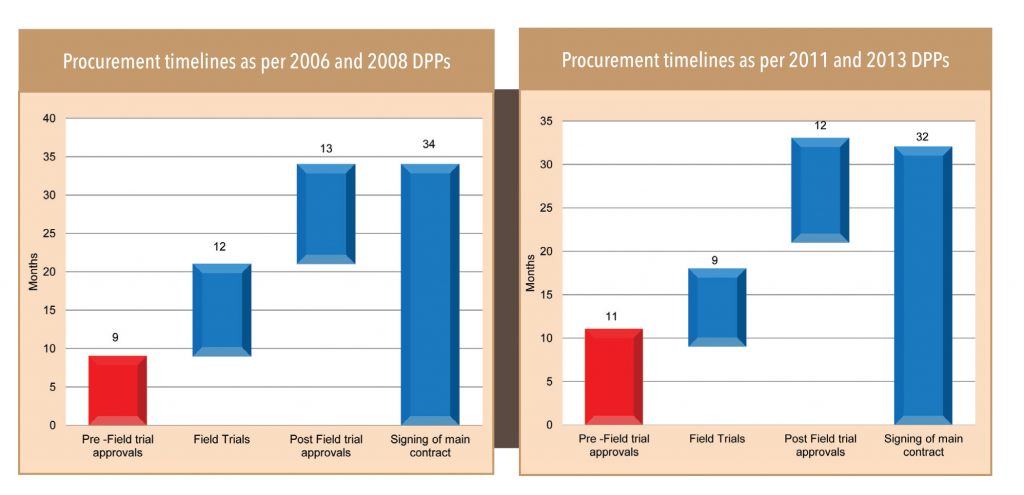“India is good at framing policies; it is in implementation that it lags behind”
– Independent defence consultant
Up until the 1980s, India’s defence acquisition was carried out on a government-to-government basis, primarily with the erstwhile Soviet Union. However, defence deals have been dogged by corruption, lack of transparency, and bureaucratic hurdles – leading to delays in acquisition. Due to this, a strong need was felt to simplify the entire defence procurement procedure, expedite timelines,and to promote India’s indigenous industry and platforms. With these objectives, the DPP (Defence Procurement Procedure) was introduced in 2002, and has undergone numerous amendments (2003, 2005, 2006, 2008, 2011, 2013, and the latest one in 2016) since then.

“In defence, one policy cannot fit all”
– CEO of a leading defence company
A strong need was felt to simplify the entire defence procurement procedure, expedite timelines, and to promote India’s indigenous industry and platforms.
India’s defence procurement chain

Timelines for placement of orders has reduced modestly since DPP 2006…
Time taken to issue contracts has reduced since the 2006 DPP, as the government attempted to simplify procurement procedures; this is likely to reduce further due to DPP 2016.

Subscribe to enjoy uninterrupted access